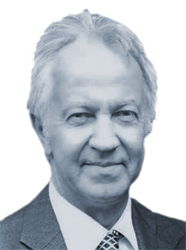 The complex wrangle between FC Sion and the international football authorities can only become more complex after the Swiss club called up the advice and insight of Jean-Louis Dupont who honed his Sport v The Law reputation in the Jean-Marc Bosman case.
The complex wrangle between FC Sion and the international football authorities can only become more complex after the Swiss club called up the advice and insight of Jean-Louis Dupont who honed his Sport v The Law reputation in the Jean-Marc Bosman case.
Never mind football statutes, Dupont is even looking at the Sion case from the perspective of the Convention on Human Rights.
Bosman’s action in the early 1990s ended up in the European Court of Justice issuing a verdict which led to the creation of the current fee-free end-of-contract transfer system as well as to the scrapping of all foreign player restrictions within the European Union.
Belgian lawyer Dupont believes Sion have a good case which they have argued in front of the Swiss cantonal courts and will repeat in front of the Court of Arbitration for Sport on November 24.
Whatever happens then, it’s questionable whether the CAS ruling will have any immediate effect. Presumably the three judges will have to go away to consider their verdict and ensure it is written up in the proper manner before it can be revealed . . . and until then neither Sion nor UEFA can consider an appeal to the Swiss federal courts.
This means that UEFA’s options – if CAS rules for Sion – for reinstating the club in the Europa League may have become impractical apart from the suggestion that Sion play off against one of the second round qualifiers (including those clubs relegated out of the Champions League) early next February.
As stated in these columns before, CAS has been exposed as not fit for purpose because the time its process demands does not respond to the pace of sporting competition. This was the very reason which prompted Sion to defy FIFA and Swiss federation statutes and take their case to the local Vaud cantonal court in the first place.
Dupont has other reasons of his own for questioning whether CAS has a credible role to play in this case. One concerns a ruling from the European Commission in 2001 that a player has an absolute and equal right to go either to CAS or to a civil court if he is in dispute with his club; whether this applies in the Sion case is not clear for several reasons.
However, where Dupont has an obvious point goes to the heart of the make-up of the CAS judges’ panel and is drawn from the Convention on Human Rights to which Switzerland is a signatory.
In a Swiss media interview at the weekend, he explained it thus: “Article Six of the convention stipulates that every individual has to the right to be judged by a court which is both impartial and neutral. Now, the operation of CAS does not respond to those criteria.
“The two parties to a dispute each have the right to choose a judge but the third, the one who affects the balance, is designated by Thomas Bach who is president of the CAS Appeal Court, a member of the International Olympic Committee, and thus close to the sports establishment. This every judgment comes down to two against one in a manner which is totally contrary to the spirit of the law.”
By Keir Radnedge






